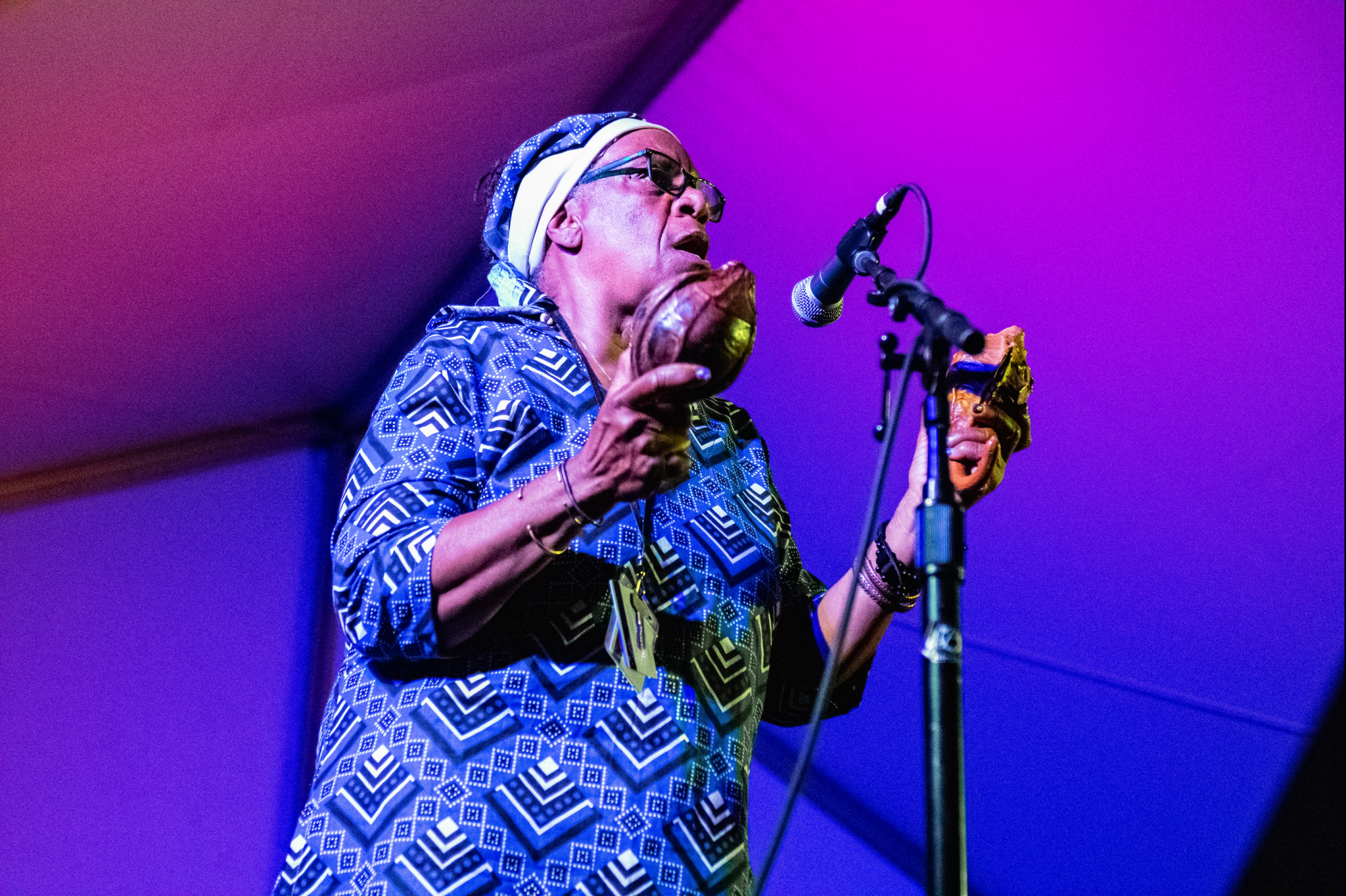Zimbabwean music was alive with the sounds of marimba and cheers of the crowd as the 2023 Zimbabwean Music Festival, or Zimfest, celebrated culture and music on the Oregon State University campus.
The first ever Zimfest was orchestrated in Seattle of 1991.
Zimfest was started by the former students of Dr. Dumisani Maraire who brought marimba and mbira music to the Pacific Northwest, according to the Zimfest website.
The festival has been hosted in several cities in Washington and Oregon such as Seattle, Eugene, Portland, Port Townsend and Corvallis.
This is the first time Zimfest has occurred in Corvallis for 11 years.
“We had been here in 2011,” said Claire Jones, festival coordinator. “So one of the people who organized it was an alumni, so he made arrangements for us to bring it back.”
Zimfest included an African marketplace with a variety of goods like marimba mallets and Zimbabwean clothing, with Zimbabwean music playing nearby.
One of the stands at the marketplace is the Humwe stand, run by Tsitsi Hantuba, the founder and president of Humwe.
“My stand is called Humwe which is a nonprofit that I founded with the mission of preserving traditional Zimbabwe music and culture,” Hantuba said. “It serves kids that I enroll under Mhondoro which is in Zimbabwe. We focus on both girls and boys so we provide free dance classes, mbira classes, marimba classes, singing.”
There are two instruments Zimfest focuses on: the marimba and the mbira.
The marimba is a percussion instrument similar to a xylophone that uses mallets to strike bars, laid out similarly to a piano.
One way the Zimbabwean marimba differs from a marimba you would see in an orchestra is in the mallets used. While orchestral marimbas use softer mallets, Zimbabwean marimbas are often played with hard rubber mallets.
The mbira, an instrument in Zimbabwe culture, is made of forged steel and is hand-hammered onto the soundboard.
According to Erin Ely, volunteer with the Kutsinhira Cultural Center, this instrument is used for ceremonial purposes.
“Long time ago, Zimbabwe used to be a British colony,” Hantuba said. “ So when the British came in, one of the things that they did at the time was they tagged the mbira instrument as evil, so it was demonized quite a bit. So that has stuck for generations. So now part of what (our) nonprofit is trying to do is to help Zimbabweans understand and realize that there is nothing wrong with the instrument itself.”
While at the event, workshops were run, each one listed with a skill rating from beginner to intermediate to advanced.
These workshops range from dancing to learning how to play mbira or marimba.
During the African market, Zimbabwean music was playing with dancers.
Zimbabwe music groups playing at the market came from across the Pacific Northwest to perform in the festival.
Some of these groups include Boka Mbira from Portland, Murkana Marimba from Olympia and Mudavanhu Magaya and Friends from Mhondoro, Zimbabwe.
“We come here because we are celebrating the music itself,” said Mandy Muchinerpi, family nurse practitioner and guest at the event. “This level of music really brings us home, brings us all the way from the United States all the way back to Zimbabwe and it really means a lot and it’s nice to see (the music) being played by everybody else. It’s a community as a whole and supporting this music as a community is so much fun.”












































































































